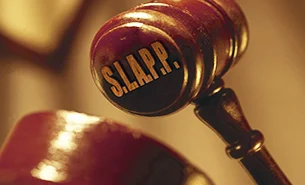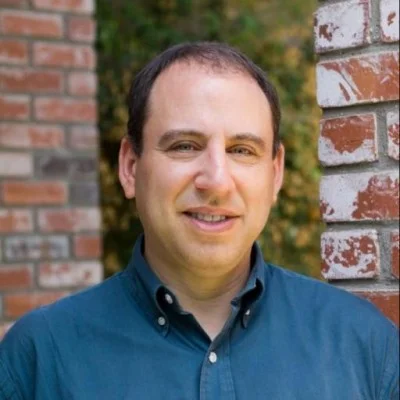Speak Free Act of 2015
Since the introduction of the SPEAK FREE Act of 2015 in May, momentum has been building to enact federal anti-SLAPP legislation. The bill had more than 30 co-sponsors in the House and there was a hearing in the House Judiciary Committee on June 22, 2016. You can view that hearing here. PPP is working with a coalition of supporters of the bill to get it reintroduced in the House and introduced in the Senate as soon as possible.
In 2016, PPP actively worked with a coalition of supporters and staffers on the Hill to push for a hearing on the bill in the House. PPP also has been actively working with that coalition and folks on the Hill on the Senate version of the bill. A few highlights include:
Policy Director Evan Mascagni and Board Member Kevin Goldberg participated in a panel on the Hill about the Speak Free Act. You can view that panel here.
Board Member Laura Prather testified at the hearing before the House Judiciary Committee, Subcommittee on the Constitution and Civil Justice, on the Speak Free Act on June 22, 2016. You can read Laura's testimony here.
PPP helped organize multiple coalition letters to the House Judiciary Committee urging enactment of Speak Free Act, including a letter from non-profit organizations and one from law professors across the country (more info here).
Board Member Jeremy Rosen published an Op-Ed in The Hill about the importance of the Speak Free Act. You can read that Op-Ed here.
Here is PPP's original Press Release on the bill:
On May 13, 2015, bi-partisan co-sponsors in the House introduced the SPEAK FREE Act of 2015, a law designed to protect Americans from meritless lawsuits that target their First Amendment rights. Representatives Blake Farenthold (R-TX) and Anna Eshoo (D-CA) introduced the bill in a bi-partisan effort aimed at supporting the rights of all Americans affected by meritless SLAPP suits.
Strategic Lawsuits Against Public Participation, or SLAPPs, are lawsuits used to silence and harass critics by forcing them to spend time and money to defend these meritless suits. SLAPP filers don’t go to court to seek justice. Rather, SLAPPs are intended to intimidate those who disagree with the SLAPP filer by draining the target’s financial resources. SLAPPs are effective because even a meritless lawsuit can take years and many thousands of dollars to defend. To end or prevent a SLAPP, those who speak out on issues of public interest frequently agree to muzzle themselves, apologize, or “correct” statements.
Every American, from consumers reviewing the services of a merchant online, to reporters revealing information that some would rather see kept quiet, to citizens speaking out against a development in their community, are potential targets of a SLAPP suit. The Internet age has encouraged and grown citizen participation in democracy through self-publishing, citizen journalism and other forms of speech online. Unfortunately, abuses of the legal system, aimed at silencing these citizens, have also grown. As PPP Board Member Eric Goldman, who is a professor at Santa Clara University School of Law and Co-Director of the High Tech Law Institute, points out:
Society benefits when consumers share their critical consumer reviews and social media complaints, but those negative comments often trigger strongly-worded legal threats. Anti-SLAPP laws tell consumers that they can ignore bullying tactics, which helps keep this socially important content from being scrubbed from the Internet.
While some states have combated this form of bullying by enacting anti-SLAPP laws, almost half of the states do not have legislation that protect against SLAPPs. Those laws on the books vary in strength and breadth. This patchwork of state laws allows “forum shopping” by plaintiffs, who can file their SLAPPs in jurisdictions where anti-SLAPP protections are absent or weak. Plaintiffs can also avoid state anti-SLAPP laws by filing a federal claim in federal court. Federal anti-SLAPP legislation would close these loopholes and protect Americans in all states and at the federal level from SLAPPs.
Numerous events over the past few years highlight the need for more communication about important issues. Financial health, public safety, environmental well-being, national security, and government accountability all demand an active, engaged citizenry. Technology now makes it possible for everyone to don the hat of journalist, editor, town crier or anonymous pamphleteer. The SPEAK FREE Act is particularly timely. It protects and encourages critical open dialogue, whether that speech takes place in the town square, on a cable news network, or online on a blog or consumer review site.
PPP founder and Board President Mark Goldowitz, who is also the Director of the California Anti-SLAPP Project, said, “This is a historic occasion. After more than six years of hard work, and with support from more than 100 organizations and businesses, for the first time a bi-partisan bill to enact federal anti-SLAPP legislation has been introduced in Congress. What a great day!”
PPP Board Vice President Jeremy Rosen, who is a partner at Horvitz & Levy, LLP, added:
As a lawyer who has represented dozens of parties on both sides of anti-SLAPP litigation in California, I have firsthand knowledge of the important role the anti-SLAPP statute plays in protecting the constitutional rights of free speech and petition in California. The protection of these First Amendment rights should not depend on what state a lawsuit is brought in. For this reason, a federal anti-SLAPP statute that uniformly protects such constitutional rights across the nation is long overdue.
PPP Board member Laura Prather, who is a partner at Haynes and Boone, LLP, and led the efforts to enact anti-SLAPP legislation in Texas, said:
Anti-SLAPP legislation is a bi-partisan issue that involves protecting those who lawfully speak from intimidation through the court system and creating a mechanism for early dismissal of vindictive lawsuits that have no merit. This is why Texas lawmakers unanimously passed anti-SLAPP legislation which was supported by trial lawyers, those in favor of tort reform, business groups and public interest groups alike. We are encouraged by Rep. Farenthold’s and Rep. Eshoo’s bi-partisan bill to provide anti-SLAPP legislation on a federal level and hope that it garners similar wide-spread support.
While this is not the first time a bill like this has been introduced, it is the first time in history that it has been introduced with bi-partisan co-sponsors. Chairman Darrell Issa (R-CA), Chairman Trent Franks (R-AZ), and Rep. Jared Polis (D-CO) are also original co-sponsors of the legislation. PPP applauds their efforts and is proud to support the SPEAK FREE Act of 2015.






Since the introduction of the SPEAK FREE Act of 2015 in May, momentum has been building to enact this important legislation. The bill now has more than 30 co-sponsors in the House and there was a hearing in the House Judiciary Committee on June 22, 2016. You can view that hearing here.
Here is just some of the coverage that the Speak Free Act has been receiving: